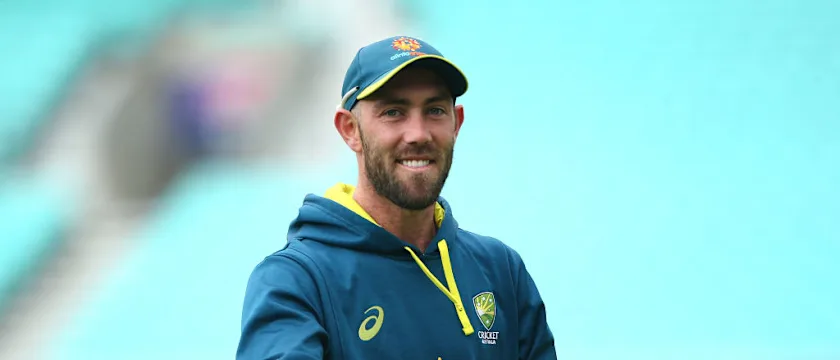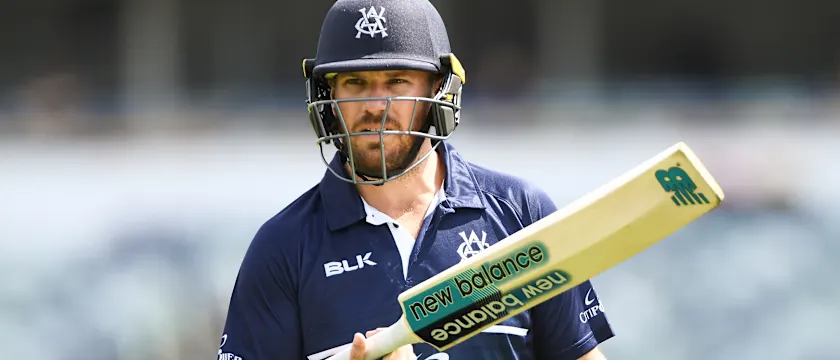Maxwell feels Australia have 'turned a corner' in T20 cricket

Since the start of 2018, Australia have maintained a win percentage of 59, which is discernibly higher than their overall win percentage of 52. Their win/loss ratio of 1.625 is also much higher than their overall corresponding number of 1.173.
The results have coincided with the introduction of new players into the T20I set-up, including Big Bash League stars Ashton Agar, Michael Klinger, Billy Stanlake, Ashton Turner, D’Arcy Short, Mitchell Swepson, Jack Wildermuth and Ben McDermott.
"For the last 18 months to two years, I feel like we've probably turned a corner and results have massively improved," Maxwell told ESPNcricinfo. "I think that's reflected in the way we've actually started looking at T20 cricket. We've starting looking at 'alright, let's start, instead of picking our one-day side and turning it straight into our T20 side, let's pick more specialists for this', which is I think giving guys specialist roles as well, not just roll out the same batting line-up or whatever.
"Now we've actually got specialist roles for T20, which is nice, and I think with that change and mindset, results have changed a little bit for us. I think especially guys nutting out their roles and knowing where they fit into the side is a massive thing. Even simple things like fielding positions and where you run to in the field in between overs. When you get that right, it can all just look like clockwork and everyone knows what they're doing.
”All of a sudden, you've just got extra time up your sleeve, Finchy [Aaron Finch, the captain] can relax a little bit at the back end, know guys are in the right spot and not have to stress about anything. The more you play with these guys and the more you're moulding around each other, it can just become a little simpler for each other."
One of the features of this new-look T20I side is the strong leadership presence, with several members of the squad having captained their respective BBL sides. Maxwell felt that the key for Australia to succeed in the format would be to let Finch have his space and manage things his way.
"You've got to be careful I think, especially with this format,” he said. “You don't want to have too many voices coming at the captain, because there's so little time as well. You don't want three or four guys going to him at different times with different ideas. You've got to let him have his time to think, talk to the bowler and leave them to it. If he comes to you at a break or at a wicket, you answer him, give him honest whatever, let him deal with it, but only if he asks you.

"You're there to help him if he's ever stuck, but you know he's probably getting a couple of voices from somewhere else as well. I'm generally fielding on the fence for most of that, so you don't really want to come out of nowhere when you know he's probably had a couple of other guys already come to him. It's about giving him that space."
As for his own game, Maxwell figures to be an important part of Australia’s T20 World Cup plans. The early signs have already emerged, with his 28-ball 62 in Australia’s season-opening first T20I against Sri Lanka.
But his red-ball game remains a work in progress. A four-match stint with Lancashire in Division Two of the County Championship over the English summer fetched middling returns of 96 runs at 19.20, while his Shield season has got off to an inconsistent start.
"I haven't even sought out clarity or anything about Test stuff," he said. "I'm not overly too worried about it because I know I'm probably not next in line, so what's the point in thinking about it right now? I've got to be making big hundreds, big scores. And until I even start making some of them, there's no real point in me asking. If you average 30 for the season, there's no point in asking 'when am I going to play Test cricket for Australia’.
"I know there's still a fair bit of work to do for me to get back in that Test side. It's not something I'm losing sleep over at the moment."
